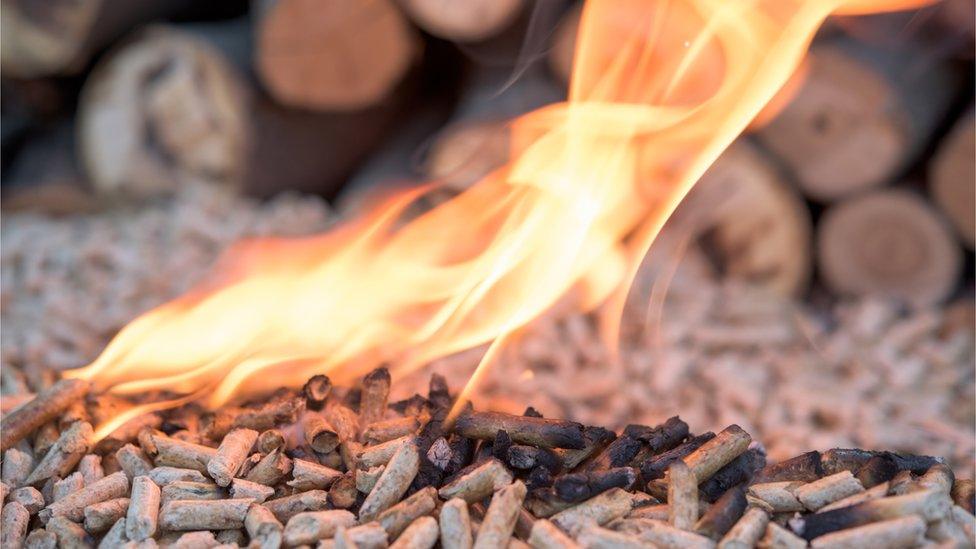Criminal case ban on RHI inquiry evidence
- Published

Retired judge Sir Patrick Coghlin is chairing the RHI public inquiry
Evidence given by witnesses at the Renewable Heat Incentive (RHI) inquiry cannot be used in any criminal case against them, its chairman has said.
It follows a written commitment by the Director of Public Prosecutions.
Barra McGrory also promised RHI witness evidence will not be used in deciding whether to take such a criminal case.
Chairman Sir Patrick Coghlin asked for this, to ensure witnesses could not use legal protections on self-incrimination to frustrate the inquiry's work.
The public inquiry was set up in January to investigate the operation of a botched green energy scheme.
The aim of the RHI initiative was to encourage businesses and other non-domestic users to move from using fossil fuels towards renewable heating systems.
However, a lack of cost controls and overly generous payments led to a financial scandal which brought down Northern Ireland's power-sharing government.
News of Mr McGrory's witness evidence guarantee came as the RHI inquiry held its second public session.
320 summons
The commitment covers witness statements, oral evidence and any document produced solely by that person to the inquiry.
However, it does not cover anyone who gives false testimony.
Sir Patrick said his intention now was to begin hearing oral evidence in the first two weeks of October.

The three-person inquiry panel also includes Dame Una O’Brien and Keith MacLean
The chairman also outlined the huge task facing the inquiry.
To date, his team has processed 320,000 pages of documents - the equivalent of approximately 1,000 lever arch files - much of it relating to email chains.
Sir Patrick said statements from some witnesses ran to more than 100 pages.
He added that was an indication of "just how seriously many of those involved are treating their engagements with the inquiry".
Sir Patrick was unable to provide an estimate of the total number of as yet unprocessed documents received by his team, but said it was the equivalent of 13 gigabytes of computer memory.
The chairman has issued 320 summons to individuals and organisations asking them to produce evidence.
Some have received more than one.
These include government departments, politicians, civil servants and special advisors.
In addition, 1,058 recipients of RHI subsidy have been written to, asking for co-operation in respect of relevant information.
About 80 of them have replied.
Sir Patrick said the information his team received from the claimants had opened up further lines of investigation.
The retired Appeal Court judge was appointed to chair the public inquiry in January, by Northern Ireland Executive ministers before the collapse of the assembly.
The financial controversy - dubbed the "cash-for-ash scandal" - engulfed Stormont late last year.
'Money-to-burn' claims
DUP leader Arlene Foster set up the RHI scheme in 2012, in her then role as Stormont's enterprise minister.
However, flaws in the design of the scheme led to accusations that the more fuel claimants burned, the more cash they earned.
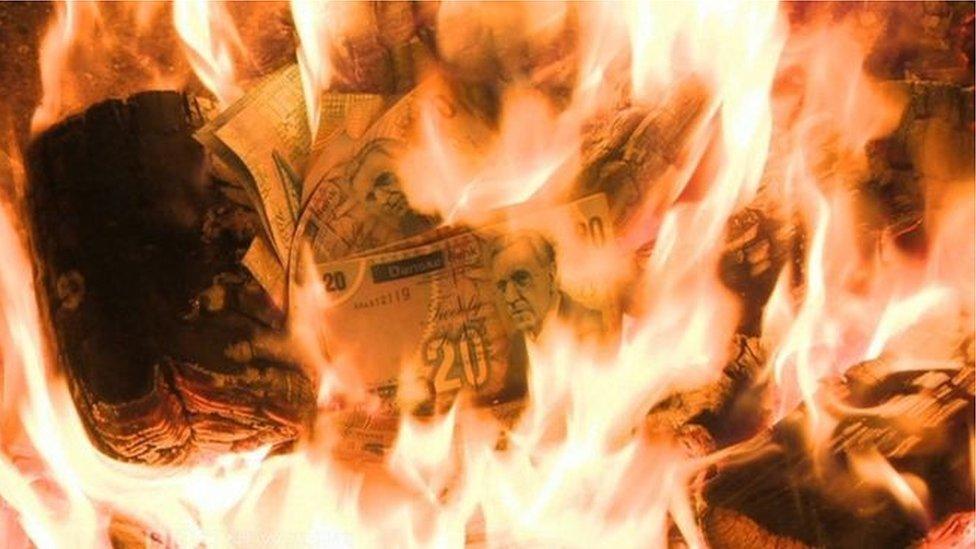
Flaws in setting the scheme's subsidy rate left it open to accusations that claimants could burn more to earn more
A whistleblower claimed the subsidy scheme was being abused, with claims that one farmer aimed to collect about £1m over 20 years for heating an empty shed - fuelling "money-to-burn" claims. It was never proven.
Earlier this year, it was projected that more than £1bn of public money was to due to be paid out by the UK government over the next 20 years - with £490m coming from Stormont's block grant.
Cost controls have since been introduced for 2017/18 which will greatly reduce that amount, but RHI recipients who will lose out are set to challenge cost-cutting measure in the courts later this year.
Under mounting public pressure in January, the late Sinn Féin's Martin McGuinness resigned as deputy first minister of Northern Ireland in protest at the DUP's handling of the investigation.

Who is Sir Patrick Coghlin?
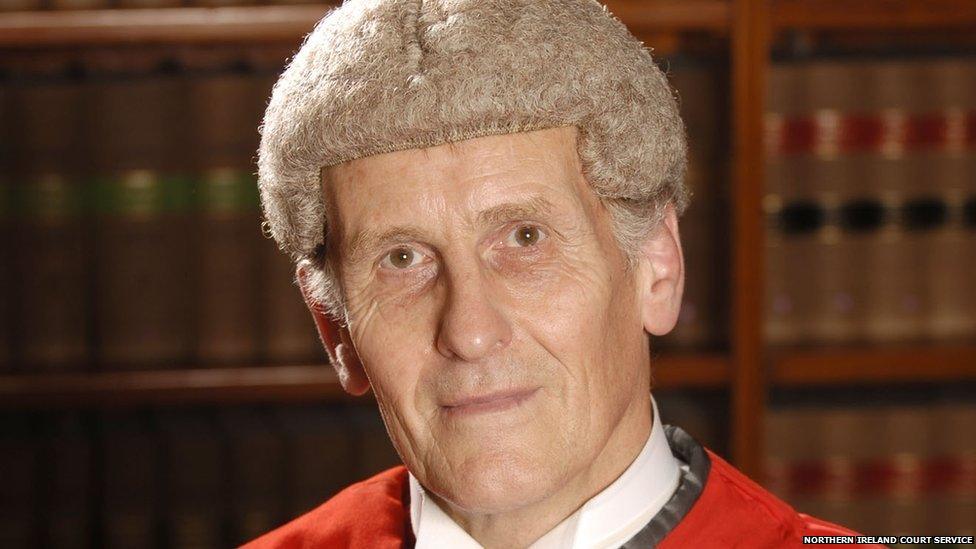
Sir Patrick Coghlin legal career stretches back nearly 50 years
Educated at Queen's University, Belfast, and Cambridge University
Called to the Bar in Northern Ireland in 1970, the Bar of England and Wales in 1975 and the Bar of Ireland in 1993
Deputy County Court judge from 1983 until 1997
Appointed Lord Justice of Appeal in 2008 until his retirement in 2015
Also deputy chair of the Northern Ireland Boundary Commission and member of the Northern Ireland Judicial Appointments Commission
Appointed Privy Counsellor in 2009

His party had demanded that Mrs Foster step aside temporarily as first minister to allow an inquiry to begin, and when she refused, he quit.
The joint nature of their office meant that when he resigned his post, she also lost her job, and the secretary of state had to call a snap assembly election in March.
Sir Patrick is leading a three-person panel which has promised to conduct a thorough investigation into the design and operation of the RHI scheme, including efforts to implement cost controls.
At the time of his appointment, the chairman said: "Rest assured every stone will be turned and there will be no dark corners where the light won't shine."
The other panel members assisting him are Dame Una O'Brien, a former Permanent Secretary of the UK Department of Health, and Keith MacLean, chair of the energy UK Energy Research Centre (UKERC).
Their aim is to establish the facts, the inquiry has no power to determine any person's criminality or civil liability.
- Published6 June 2017
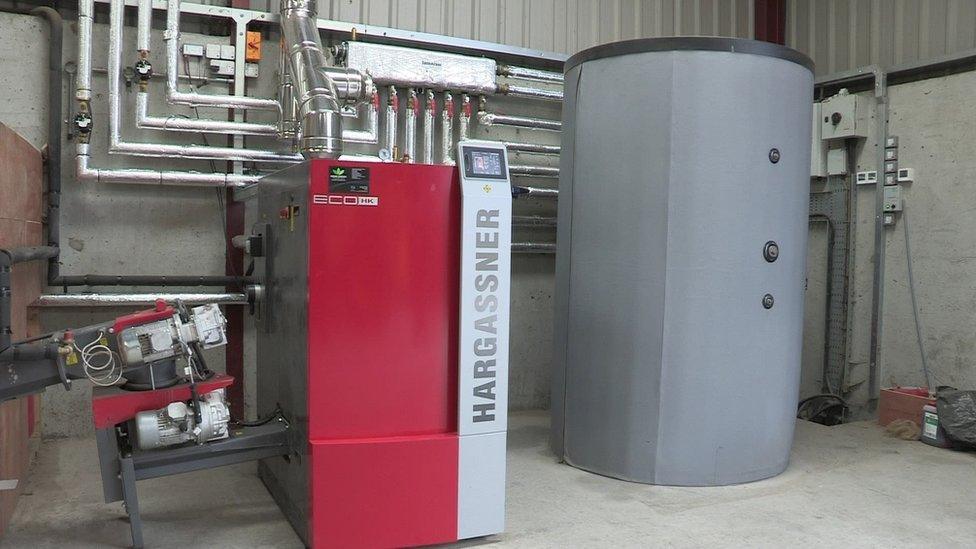
- Published27 April 2017
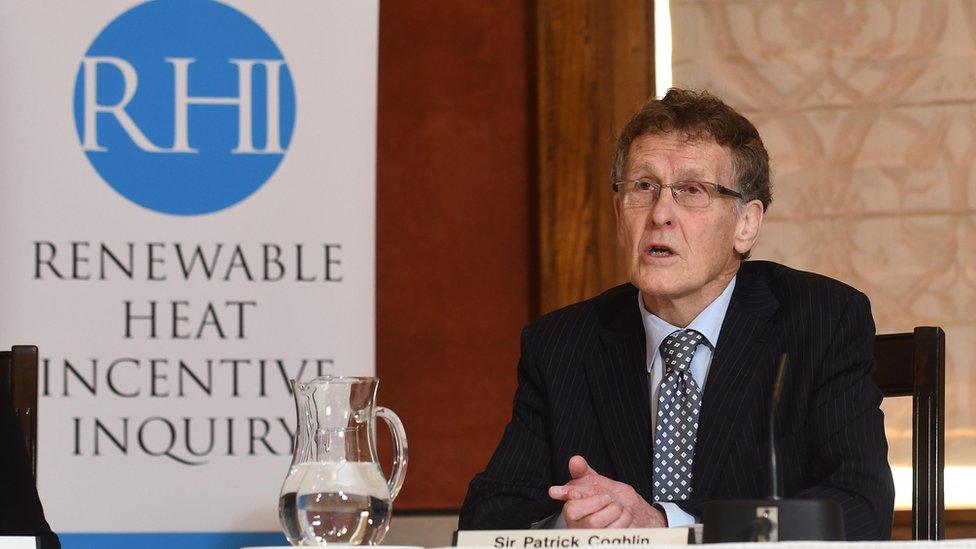
- Published6 April 2017
